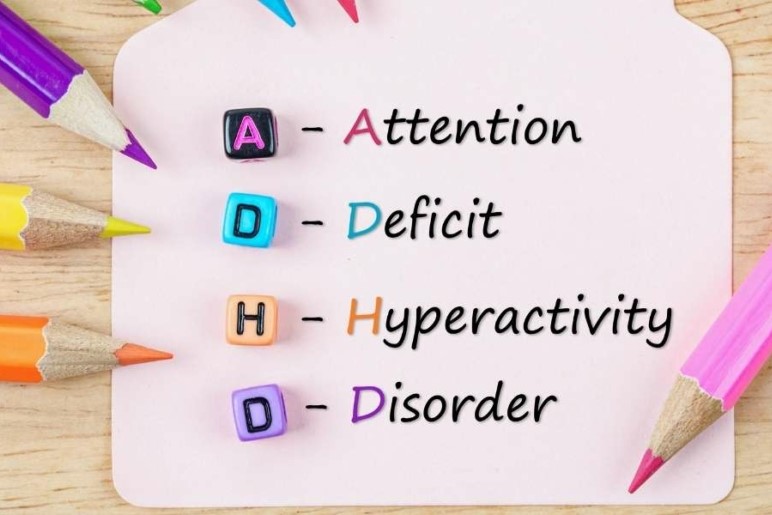
Attention deficit hyperactivity disorder: what worsens ADHD symptoms
Lifestyle habits have a profound influence on a person’s overall health. Unfortunately, some of these habits can make your ADHD symptoms worse
In this article, we share six things that inadvertently make ADHD worse, along with some tips to support your brain health.
ADHD Definition
Attention deficit hyperactivity disorder or ADHD is a disorder that affects one in 20 children.
This condition affects how a person pays attention, sit still, and control their behaviour.
Although ADHD is well known as a childhood disorder, many adults also experience it.
Learn more about the signs and symptoms of ADHD and work your action plan with your healthcare provider.
TRAINING IN FIRST AID? VISIT THE DMC DINAS MEDICAL CONSULTANTS BOOTH AT EMERGENCY EXPO
6 Things that Makes ADHD Worse
Several factors can make ADHD much more challenging to manage.
Factors that worsen symptoms of ADHD include:
Lack of physical activity
Low to zero levels of physical activity are known to result in poorer attention spans and hazy memories.
Living a sedentary lifestyle makes symptoms worse.
Studies show that children with ADHD are at risk of developing diseases, particularly those that engage in long-term sitting.
Regular exercise and engaging in physical activity are suitable for the body.
It also does incredible things for one’s mental health.
It boosts memory and clarity, combat brain fog, and help you focus and pay attention.
Stress
Although the primary causes of ADHD come from genes, external factors contribute to its negative impact.
These include stress and traumatic events.
Stress aggravates common symptoms of ADHD, and when symptoms are not under control, it results in more stress.
Previous research proves that ADHD symptoms links with stress, particularly to adults with an inattentive presentation.
Chronic stress changes the brain’s chemical balance, affecting a person’s function and cognitive abilities.
It is essential to manage stress to keep it at manageable levels.
Sleep Deprivation
Lack of sleep can cause ADHD symptoms to become worse.
Often, sleep deprivation results in inattention, drowsiness, and making careless mistakes.
It can also lead to a decline in concentration, performance at work, tiredness, and even comprehension.
In children, lack of sleep results in them becoming hyperactive to compensate for having a lack of energy.
Getting seven to eight hours of sleep every need may help a person with ADHD control its symptoms.
ADHD, Food and Additives
Poor food choices can worsen symptoms of ADHD.
People with the said condition need to be mindful of what they consume.
Though the jury is still out on the effect of food on ADHD, particular food and additives are known to exacerbate symptoms.
These include junk foods, chocolates, milk, and more.
The best diet to follow is the one that limits excess sugar and eliminates processed foods.
Steer clear of items that come in a can, box, or bottle.
Avoid skipping your breakfast, as it can derail your focus and attention span.
EMERGENCY RADIO IN THE WORLD? VISIT THE EMS RADIO BOOTH AT EMERGENCY EXPO
Excessive use of Technology
Frequent electronic stimulation from electronic devices like cellphones, computers, TV, and the internet can worsen symptoms.
The blue light emitting from these devices intensify symptoms and can affect your circadian rhythm.
It also contributes to sleep deprivation as such devices before bed can make it even harder to fall asleep.
Instead of spending time in front of the screen, opt to read and listen to relaxing music.
CHILD HEALTH: LEARN MORE ABOUT MEDICHILD BY VISITING THE BOOTH AT EMERGENCY EXPO
Skipping Medications
Take prescribed ADHD medication even during times that you feel good.
Follow doctors instructions and put a reminder on your phone on when to take it.
Keep a copy on your car keys or bathroom mirror in case you forgot.
Read Also:
Emergency Live Even More…Live: Download The New Free App Of Your Newspaper For IOS And Android
ADHD Or Autism? How To Distinguish Symptoms In Children
Autism, Autism Spectrum Disorders: Causes, Diagnosis And Treatment
Intermittent Explosive Disorder (IED): What It Is And How To Treat It
Management Of Mental Disorders In Italy: What Are ASOs And TSOs, And How Do Responders Act?
How Cognitive Behavioural Therapy Works: Key Points Of CBT
12 Essential Items To Have In Your DIY First Aid Kit
Anxiety: A Feeling Of Nervousness, Worry Or Restlessness
Firefighters / Pyromania And Obsession With Fire: Profile And Diagnosis Of Those With This Disorder
Hesitation When Driving: We Talk About Amaxophobia, The Fear Of Driving
Rescuer Safety: Rates Of PTSD (Post-Traumatic Stress Disorder) In Firefighters
Schizophrenia: Risks, Genetic Factors, Diagnosis And Treatment
Why Become A Mental Health First Aider: Discover This Figure From The Anglo-Saxon World


